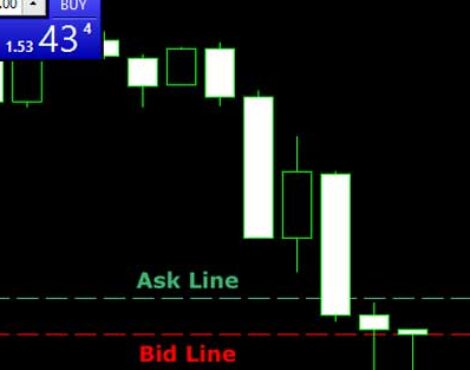The world of trading can be a complex and daunting one, with countless factors influencing the success or failure of each decision made. However, one aspect that is often overlooked is the psychology of trading. Understanding the inner workings of a trader’s mind can make the difference between a profitable trade and a devastating loss. In this article, we will delve into the psychological aspects of trading and how to manage emotions, build confidence, and develop a winning mindset.
The Psychology of Trading: An Overview

The psychology of trading is the study of the emotional and mental factors that affect a trader’s decisions. It encompasses the beliefs, attitudes, and biases that traders bring to the market, as well as the emotions that arise during the trading process. These psychological elements can have a significant impact on a trader’s performance, often leading to irrational or impulsive decisions that can result in losses. Understanding and managing the psychological aspects of trading is crucial for long-term success in the market.
Understanding the Trader’s Mindset

A trader’s mindset is a combination of their beliefs, attitudes, and expectations about the market. It is influenced by their past experiences, risk tolerance, and personal values. A positive and disciplined mindset is essential for trading success. Traders must be able to remain focused, patient, and adaptable in the face of market volatility. They must also have the ability to analyze market trends and make rational decisions based on their analysis.
Managing Emotions in Trading Decisions

Emotions play a significant role in trading decisions. Fear, greed, hope, and regret are all common emotions that can influence a trader’s actions. To manage these emotions, traders must develop a trading plan and stick to it, regardless of their emotional state. They must also learn to recognize when their emotions are affecting their decisions and take steps to mitigate their impact. This may involve taking a break, seeking out a mentor, or practicing mindfulness techniques.
The Role of Confidence in Trading Success

Confidence is a crucial aspect of trading psychology. Too little confidence can lead to indecision and missed opportunities, while overconfidence can result in reckless and impulsive decisions. Building confidence in trading involves:
- Developing a deep understanding of the market
- Creating and following a well-thought-out trading plan
- Continuously learning and adapting to changing market conditions
- Keeping a record of past trades and analyzing them to identify areas for improvement
- Seeking feedback and advice from more experienced traders
- Celebrating successes and learning from failures
Overcoming Fear and Greed in the Market

Fear and greed are two of the most powerful emotions that traders must overcome. Fear can cause traders to sell too early or avoid taking risks, while greed can lead to holding onto positions for too long or taking on too much risk. To overcome these emotions, traders must:
- Develop a clear and realistic trading plan
- Set stop-loss orders to limit potential losses
- Establish profit targets to lock in gains
- Keep a trading journal to track emotions and decision-making processes
- Stay disciplined and avoid making impulsive decisions based on fear or greed
Developing a Winning Trading Psychology

Developing a winning trading psychology involves cultivating a mindset that is resilient, adaptable, and focused on long-term success. Traders must be willing to learn from their mistakes, continuously improve their skills, and stay committed to their trading plan. They must also be able to maintain a positive and confident attitude, even in the face of setbacks or losses.
Comparison Table: Emotional vs. Rational Trading Decisions
| Emotional Trading Decisions | Rational Trading Decisions |
|---|---|
| Influenced by fear, greed, hope, regret | Based on analysis and a trading plan |
| Impulsive and reactive | Calculated and strategic |
| Often lead to losses | More likely to lead to success |
| Short-term focus | Long-term focus |
| Driven by immediate gratification | Driven by disciplined risk management |
| Prone to overconfidence or indecision | Balanced and confident |
Conclusion
The psychology of trading is a critical aspect of success in the market. By understanding the trader’s mindset, managing emotions, building confidence, overcoming fear and greed, and developing a winning psychology, traders can improve their performance and achieve their financial goals. It requires continuous self-reflection, discipline, and a commitment to personal growth. With the right mindset, traders can navigate the complexities of the market and come out on top.



